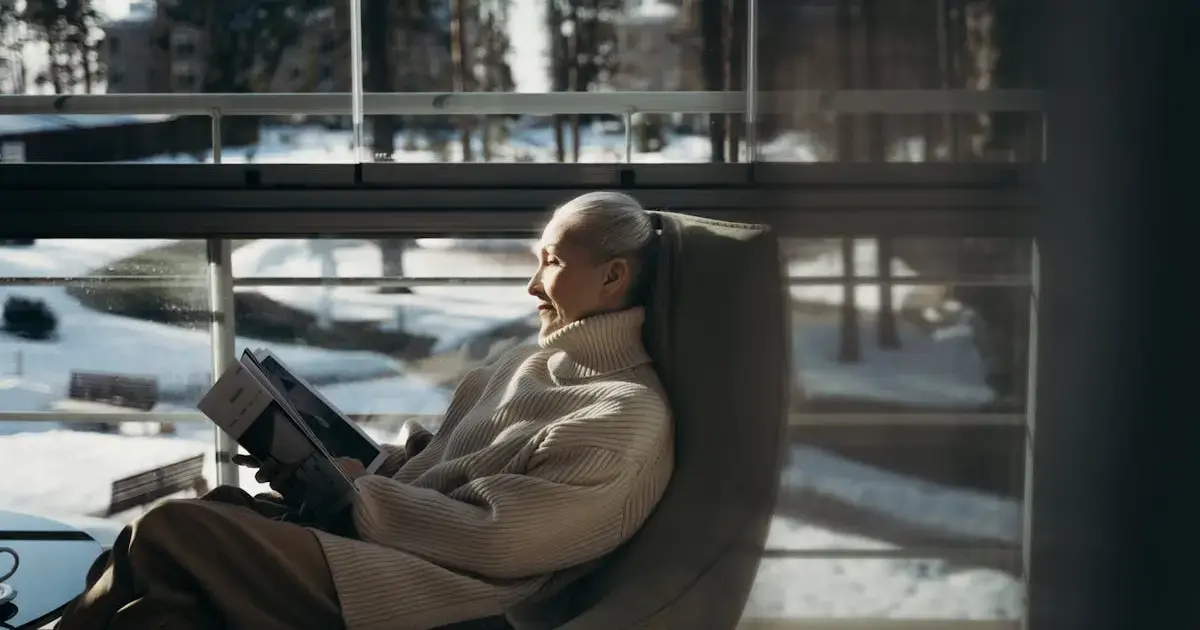 Researchers have long observed that older adults struggle more with low temperatures. So, it’s no surprise that as we age, our wardrobes fill up with warmer , gloves, and scarves.
Researchers have long observed that older adults struggle more with low temperatures. So, it’s no surprise that as we age, our wardrobes fill up with warmer , gloves, and scarves.
Eliz Dallas, a physician at a London general practice, has identified common reasons why older individuals feel the cold more acutely. She also shared practical tips on how to stay warm during the chilly months to avoid getting sick. Here are the reasons behind age-related cold sensitivity.
Slower Metabolism
According to Dr. Dallas, metabolism slows down with age due to hormonal changes. The function of the thyroid gland declines, which in turn reduces metabolic rate and thermogenesis—the body’s heat production.
The expert also noted, “Changes in the adrenal glands lead to decreased levels of DHEA (dehydroepiandrosterone) and cortisol rhythms, which can affect energy balance and thermoregulation.”
Loss of Muscle and Fat Mass
As we age, we lose both muscle and fat mass, negatively impacting the body’s insulation, as reported by Independent.
“ redistributes from the limbs to the central areas of the body, which reduces peripheral heat loss,” says Dr. Dallas.
Poor Circulation
In older age, circulation is not as robust as it is in youth. “Blood vessels become stiffer, making their expansion more difficult. Peripheral circulation slows down, especially in the limbs, which reduces heat dissipation. The autonomic regulation of blood flow also weakens, complicating the maintenance of warmth,” the expert noted.
Chronic Conditions
Chronic conditions such as hypothyroidism, anemia, and can increase older adults’ sensitivity to cold by affecting the body’s ability to produce and dissipate heat. “Additionally, heart failure limits blood flow to the skin and extremities,” says Dr. Dallas.
Side Effects of Certain Medications
Older adults also feel the more intensely due to some medications. For instance, diuretics can cause dehydration and electrolyte imbalances, disrupting thermoregulation.
Antidepressants, on the other hand, affect the hypothalamus’s thermoregulation. Meanwhile, some vasodilators, intended to improve circulation, may worsen vascular tone and hinder heat flow. Therefore, when receiving a prescription, it’s important to ask your doctor how the medication might affect your sensitivity to cold.

Additional Factors
“Thinner , reduced sweat gland function, lower physical activity, and impaired hypothalamic response worsen the body’s ability to sense and react to cold,” the doctor added. Factors contributing to cold intolerance also include “reduced calorie intake and decreased brown fat activity.”
Could exposure to cold lead to serious health issues for older adults?
Eliz Dallas confirmed this assumption: “Yes, exposure to cold can lead to many serious health problems in older adults. Hypothermia can occur even indoors. Meanwhile, cold stress increases the risk of cardiovascular diseases, exacerbates arthritis, impairs cognitive functions and mobility, and raises the risk of falls.”
How to Combat Low Temperatures?
According to the expert’s advice, it’s essential to wear warm clothing, maintain an indoor temperature of at least 68°F (20°C), use warm blankets or heating pads, avoid drafts, and insulate windows and doors.
“Additionally, regularly consume warm meals, drink plenty of fluids, and try to stay active indoors to improve circulation,” recommended Dr. Dallas.
Photo: pexels.com
